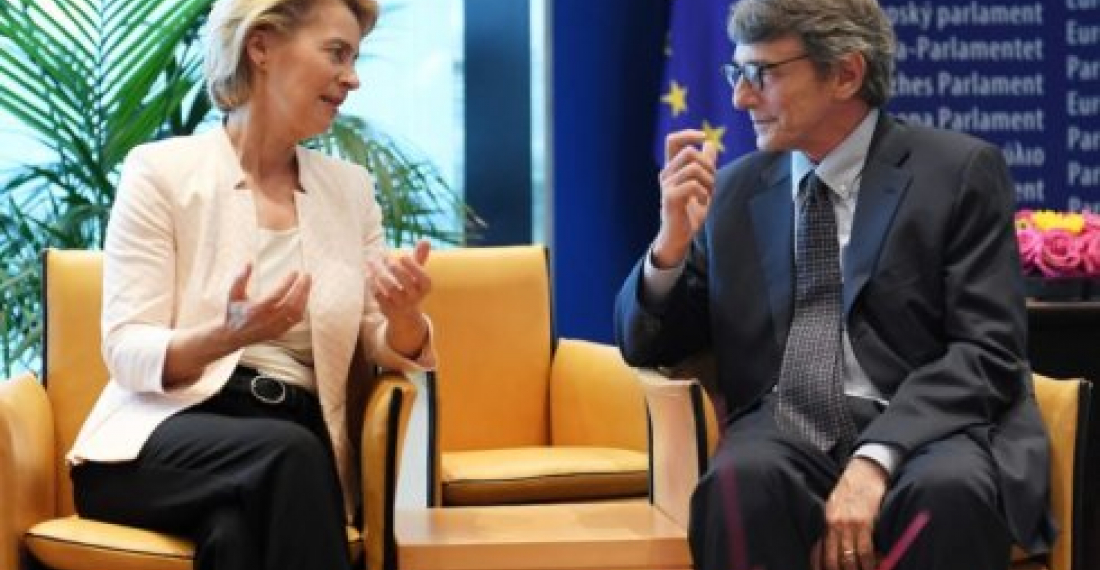The European Commission has its first female president. Ursula von der Leyen was confirmed after a vote in the European Parliament, at a meeting in Strasbourg on Monday (16 July). In an address to the parliament van der Leyen presented her platform for a greener, fairer and rule-based Europe.
She secured 383 votes to 327 against, said David Sassoli, the president of the European Parliament, announcing the result. The threshold was 374.
With 52% support, von der Leyen’s victory margin was in line with recent trends. Current Commission President Jean-Claude Juncker received 56% while his predecessor Jose Manuel Barroso had 52% for his second mandate and 56% for his first term.
"The trust you placed in me is confidence you placed in Europe. Your confidence in a united and strong Europe, from east to west, from south to north," said the German conservative, who earlier this week resigned as Berlin's defence minister. "It's a big responsibility and my work starts now."
"Let us work together constructively because the endeavour is a united and strong Europe," added von der Leyen, who will take up her new role on November 1.
source: commonspace.eu
photo: New European Commission president Ursula von der Leyen and European Parliament president, David Sassoli in Strasbourg on 16 July 2019.







